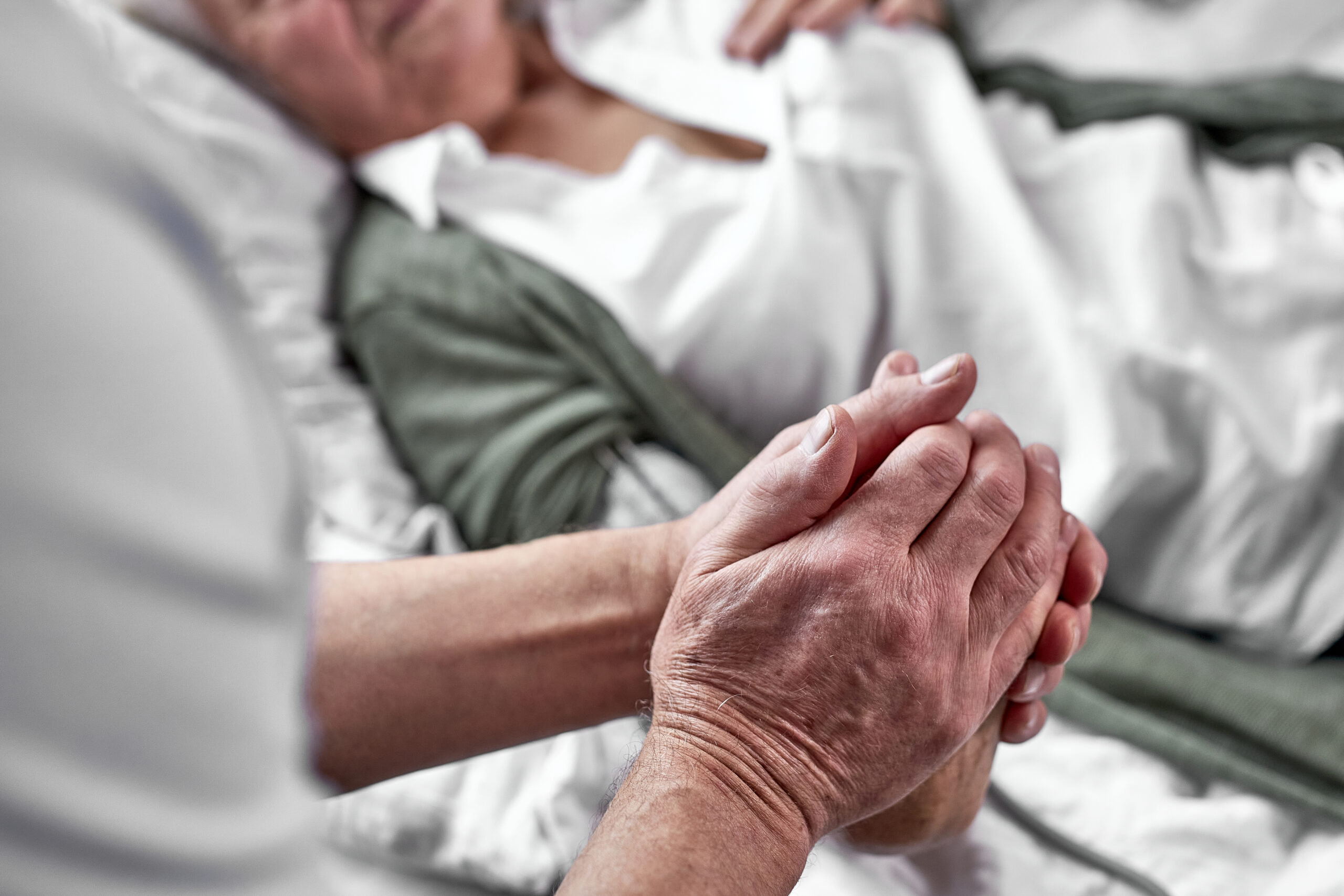What To Do When a Person Dies at Home
Category:

As our family and loved one’s age, many of them do not want to move into a nursing home or assisted living. The current generation of elderly adults generally wants to die in their own home. While this is not always possible for a large variety of monetary and safety reasons, if you are caring for an elderly loved one, it is important to know what to do when someone dies at home.
When a loved one dies at home, your first step should be to call 911. Inform the operator that the death was expected and there is no emergency. Have the DNR paperwork ready for when the EMTs arrive. The EMTS will most likely transport your loved one to a hospital so a medical professional can sign the death certificate and then send your loved one to a funeral home.
Be prepared to deal with law enforcement. Unless a hospice nurse or physician is present when your loved one passes, the death will be considered “unattended” and the police will need to attend and make an investigation. This is a formality and should be quick and relatively painless as long as your DNR and any other necessary paperwork is available.
The death of a loved one unfortunately comes with an avalanche of paperwork. The most important piece of paper you need before you can do anything else is a death certificate. Everyone will need a copy of the death certificate – the funeral home, the bank, the social security office, the courthouse, even some cell phone and credit card companies require it to close accounts.
Who Signs the Death Certificate When Someone Dies at Home?
A medical professional needs to sign the death certificate. If your loved one died at home under hospice care, the hospice nurse can sign the death certificate. If a hospice nurse is not present, you will need to call 911 and inform the operator it is not an emergency. When the EMTs arrive, they will transport your loved one to a hospital where a doctor will declare the death, sign the death certificate, and send them to a funeral home.
Download Our FREE Path to Care Guide
What Happens When Someone Dies at Home
If your loved one wishes to die at home, they will need an Out of Hospital DNR, or Do Not Resuscitate order. These are signed by a physician and your loved one. If a DNR is not present, the EMTs who arrive at your home are legally required to resuscitate your loved one even if there is no pulse present. A living will or health care proxy are not enough.
While it does come with challenges, many elderly adults do wish to die at home. Their choice can be honored and managed with in-home hospice care and other preparations as long as they and their Caregivers can remain safe and as healthy as possible throughout the process.
Subscribe
Date: 2024-05-09
Category:


